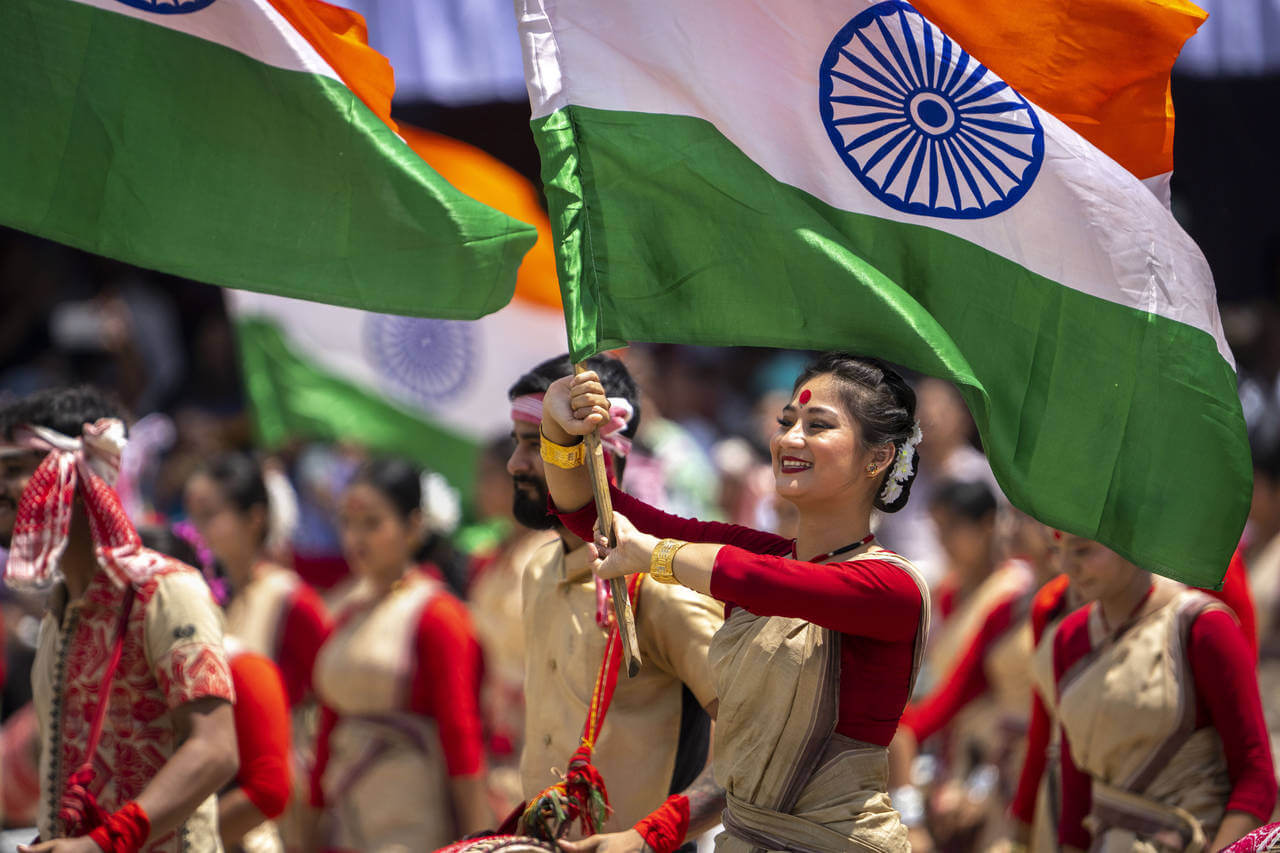PM Narendra Modi’s Independence Day speech has received mixed reviews, with some criticizing his failure to organize inclusive functions for the country’s 75th anniversary. The Hindu nationalist prime minister failed to mention international tensions with China or steps to improve relations with Pakistan. This has led to an outcry from the opposition parties. But we look at some of the things he did well during his speech to assess its worth.
Prime Minister Narendra Modi’s Independence Day speech
Prime Minister Narendra Modi’s Independence day speech laid the groundwork for a better future, focusing on five resolves. In his speech, he stressed the importance of gender equality and decried discrimination, and urged citizens to stop using cuss words and other sexist slang. He also discussed India’s achievements in technology, ethanol production, and the COVID-19 vaccination programme.
The Prime Minister congratulated the Indian armed forces for adopting his vision of a self-reliant and prosperous India. He also mentioned the use of a made-in-India gun during the 21-shot salute to the tricolour at the Red Fort on Independence Day. The PM also spoke about his efforts to turn India into a manufacturing hub through PLI schemes. He cited the Brahmos missile and the Vande Bharat trains as examples of how India can be self-reliant in energy.
Asked to address corruption and nepotism, PM Modi reminded the nation that the country is moving towards a “united India”. In a veiled dig at Congress, he said: “The ED is investigating Sonia Gandhi and Rahul Gandhi. But we’ll not tolerate corruption or dynasty politics in our nation.”
The Prime Minister urged the private sector to play a leading role in making Aatmanirbhar Bharat a reality. India’s strength may be its space sector, organic farming, and green jobs. To this end, he added the slogans of “Jai Anusandhan” and “Jai Vigyaan,” which stand for research and innovation.
- Also Read: All You Know About the Royal Family’s Annual Ghillies Ball at Balmoral Read Some More Interesting Facts!
- Also Read: Who Was Billionaire Rakesh Jhunjhunwala Dies at 62
- Also Read: Tijuana Goes Into Lockdown After Cars Burned Across City Know Authentic Details!
- Also Read: Aston Villa Vs Everton Betting Preview Know The Result Here!
“Young people today are the decision makers of tomorrow. It is our responsibility to invest in them now.” The next 100 years of India’s independence will be built by these aspirational people today, said PM Modi. Lastly, he called on the youth to devote their lives to building their country. By doing so, they will become the nation’s leaders. This should fill every Indian with pride.
PM Modi’s Independence Day speech echoes this sentiment, as he spoke to the nation from the Red Fort. His attire was an homage to the nation’s diversity and unity. While last year’s yellow turban symbolized India’s diversity, this year he chose an outfit that symbolized the unified nation. And his speech was not a mere declaration of a sweeping change of government.
Prime Minister’s promises to transform India into a developed nation
The Prime Minister’s promises to transform India into the most economically developed nation in the world have been met with scepticism by some quarters. First, what exactly is a developed nation? The definition varies depending on whom you ask, but it generally means a nation with a high per capita income and a high economic growth rate. A developed nation also has a high standard of living and performs well on the Human Development Index, which measures a country’s education, literacy, and health.
The Prime Minister’s Independence Day speech promised a number of initiatives, including a 100-trillion-dollar Pradhan Mantri Gatishakti Bharat Master Plan for integrated infrastructure growth. He also pledged to achieve energy independence by 2047. In addition, the National Hydrogen Mission will help India achieve energy independence in a few years, as it currently spends about 12 trillion dollars annually on energy imports.
Critics say the Modi government has failed to deliver on the promises made during the campaign. In particular, critics argue that the country has regressed from its commitments to make the world a better place since the Prime Minister came to power in 2014. They accuse the Modi government of pursuing an agenda that is far too Hindu nationalist and unsustainable. But the Prime Minister has continued to defy the pundits, vowing to combat nepotism and political corruption. He also proclaimed that termites were eating away at the gains of development.
Modi’s visit to the U.S. was also a chance for him to bond with President Barack Obama, and the two men personally escorted Modi to the Martin Luther King memorial, a first for a U.S. president. The visit contributed to the euphoria in the diaspora. During election season, the Bharatiya Janata Party promised to make “acche din” in the country.
Critics may admire the current prime minister’s promises to transform India into a rich country, but they should acknowledge that the country has made a mistake. The Prime Minister pushed for a cash ban in his first term, which rendered 86 percent of high-currency bank notes void overnight. However, the ban hit the growth rate. But he made promises to attract foreign investment and make doing business easier for multinationals in India.
In the face of global slowdown, India is still seen as a bright spot. It is projected to have the highest rate of growth among large economies. By advancing the budget presentation, the government can ensure that resources are allocated to all the productive sectors of the economy. In his speech, PM Modi also hinted at more radical reforms. The economy was in trouble when he took office, with high current account deficits, high inflation, and low foreign exchange reserves.
However, he must be careful not to get swept up in the hype and rhetoric of Hindu nationalism. While he may be given the benefit of the doubt in the short term, the negative image he is projecting will only hurt his reputation as a statesman. The Prime Minister must clamp down on Hindu nationalism and ensure that India remains secular and democratic. The founding fathers created a secular and democratic country, and efforts to undermine these values will not be welcomed by the Indian people.
Opposition parties’ criticism of PM Modi’s speech
While the Indian PM praised the freedom fighters for laying the foundation of ‘Aatmanirbhar Bharat’, he said that selling public sector undertakings would not ensure freedom. The opposition alleged that the government had sold railways and airports to private players, and attacked FCI and LIC. The Left parties claimed that PM Modi’s speech was full of rhetoric, and the government is working to make New India subservient to corporates.
Some of the Congress members took to Twitter to express their frustration with Modi. One Congress spokesperson, Mallikarjun Kharge, claimed that Modi was criticizing the Congress for its lack of progress on reforms. Another Congress member said that he was upset with the slow pace of reforms, and decided to keep his head down. Neither party defended Modi’s remarks, and both sides were right to criticize the government.
While the Congress party dismissed Gandhi’s statement, it did resonate with growing sentiments among the Indian people that democracy is slipping away. Even though India is the largest democracy in the world, many feel that its democratic institutions are in decline. The judiciary is crumbling, attacks on the press have become more brazen, and religious minorities have been increasingly targeted by Hindu nationalists. The government’s response to the criticisms has been less than enthusiastic.
PM Modi’s speech did contain some good news. The country’s e-commerce platform will sell products made by women SHGs in rural areas. These groups help rural women meet their daily needs. They will also gain a wider market, both domestically and abroad. While these two developments are significant, the new e-commerce platform is not the answer to all the problems that India is facing.
The Prime Minister’s speech on Independence Day has caused some ruckus among Indians. Many critics of the speech say that it re-emphasizes the need for leaders to secure the mandate of the people. He said that the Prime Minister has “different definitions of corruption.”
- Also Read: Nottingham Forest Vs West Ham United Result Which Team Got The Point!
- Also Read: Denise Dowse Dies at 64 Following a Severe Meningitis Battle Know More Details!
- Also Read: Amanda Owen Shares ‘Proud’ Announcement About Eldest Daughter Raven’s New Job Know Exiting Details!
- Also Read: Teofimo Lopez Returns With Victory Over Pedro Campa Looking Forward Now!
- Also Read: Kilmarnock Vs Celtic LIVE Know All Details Here!
The Prime Minister’s speech on Independence Day focused on his vision for a new India, while critics say it was weak and lacked substance. The Prime Minister stressed the need for national unity, praised the triple-talaq victims, and advocated stepping away from caste-based divisions and communalism. He also called for a unified nation. But the Opposition parties criticised Modi’s speech as being too personal.
The main issue that caused a rift among political parties was the Prime Minister’s criticism of a West Bengal freedom fighter. The Prime Minister also said that a West Bengal freedom fighter, Matangini Hazra, was an Assamese citizen who was killed when the police opened fire on the Quit India movement. During this speech, the Red Fort was decked with flowers and tricolours, and murals depicting key events leading to India’s independence were unveiled.











